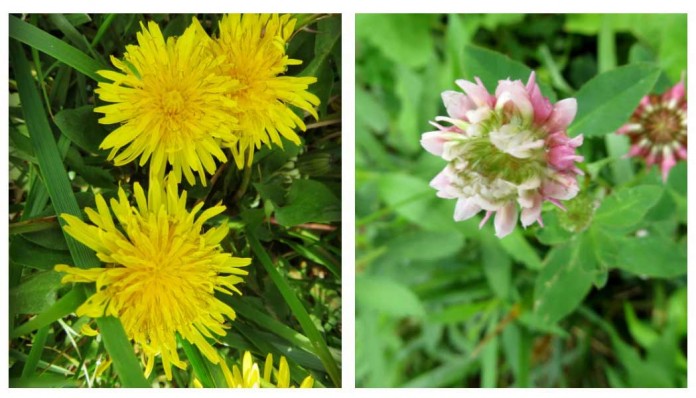All gardeners want a weed-free garden, but most gardens aren’t the picture of perfection featured in glossy magazines.
After weeks of battling weeds, by June gardeners are tempted to throw in the hat. Tools, natural herbicides, mulch and cover crops can help control weeds.
Tools to remove weeds
Over-working soil causes compaction and drainage problems. Choose weed removal tools that minimize disruption to soil. Simple tools like hoes and forks are preferable to motorized tillers. Your hands are the best weed removal tool.
Tips for hand-weeding:
• Pull weeds when they are young, before they produce seeds.
• Grab weed at base and tug upward.
• Weeding is easier right after rain or irrigation.
More about weeds in the garden:
Natural herbicides
Herbicides aren’t an option for organic gardeners, and may not be the best option for conventional gardens. Organic alternatives are available at your local garden center. Most contain natural ingredients like vinegar, salt and distilled plant oils.
Recipes for homemade herbicides abound online. Keep in mind that anything that kills weeds also kills plants. A gardener friend cooked her cucumber plants after reading an online article boasting boiling water as an organic weed-control method.
Mulch
Mulch controls weeds, maintains soil moisture and regulates temperature. Biodegradable mulches include newspaper, sawdust and yard waste. Landscaping fabric and black plastic are non-biodegradable mulches that gardeners can reuse for multiple seasons. Learn more about mulch here.
Cover crops
Cover crops release natural weed inhibitors during growth and decomposition. Plant cover crops between rows, or as part of your crop rotation plan.
Sowing a cover crop post-harvest reduces the likelihood pests and plant diseases linger in the soil to affect next season’s crops. Rye is my favorite cover crop to overwinter.
Tolerate
Last but not least, let yourself off the hook- tolerating some weeds is good for pollinators, soil and gardeners’ mental health.
Although you hate the look of weeds, pollinators love dandelions and white clover blossoms.
Weeds protect the soil by providing cover from the scorching sun, maintaining moisture and preventing a crust from developing on soil surface. Long rooted weeds aerate heavy soil. Weeds are a good indicator soil has adequate nutrients to support plant life; ground that stays bare may have deficiencies.
When the amount of weeds in your garden seems overwhelming, focus first on removing weeds in direct competition with plants for food, sunlight and water. First, weed around the bases of young plants until they are well-established. Next, remove weeds that cast shade on plants. Last, focus on aesthetics.













